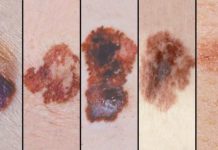In a phase II cohort study conducted among the patients with previously treated advanced KRASG12C-mutated non-small cell lung cancer (NSCLC), adagrasib showed clinical efficacy without new safety signals. The findings were presented by Dr. Alexander Spira of the Virginia Cancer Specialists Research Institute in Fairfax, VA, US at ASCO 2022 Annual Meeting along with simultaneous publication on 3 June in The New England Journal of Medicine. Similar to sotorasib, adagrasib is a selective covalent inhibitor of KRASG12C; however, reported pharmacologic differences in the molecules are the drug half-life of 5 hours for sotorasib as compared with 23 hours for adagrasib, dose-dependent extended exposure with adagrasib, and potential penetration of adagrasib to central nervous system (CNS). Adagrasib continues to be evaluated as monotherapy and in combination with other therapies in NSCLC and in other advanced solid cancers.
Enhanced preclinical and clinical understanding of the biologic characteristics of KRASG12C mutations, including elucidation of feedback loops and resynthesis half-life (approximately 24 hours) suggests that inhibition of KRASG12C may require sustained inhibition over the entire dosing period.
KRAS is the most frequently mutated oncogene in human cancer, with mutations occurring in approximately 25% of NSCLC. Mutations in KRASG12C occur in approximately 14% of adenocarcinomas and in 0.5-4% of squamous NSCLC. This mutation also occurs in 3-4% of colorectal cancers and in 1-2% of biliary and pancreatic cancers.
Adagrasib was evaluated in KRYSTAL-1, a phase I/II multiple expansion cohort study involving patients with advanced solid tumours harbouring a KRASG12C mutation. Clinical activity of adagrasib has been shown in patients with KRASG12C-mutated solid tumours, including colorectal, pancreatic, and biliary tract cancers. In addition, preliminary data from two patients with untreated CNS metastases from a phase Ib cohort had cerebrospinal fluid concentrations of adagrasib above the target cellular 50% inhibitory concentration, a mean ratio of unbound brain concentration to unbound plasma concentration of 0.47, and corresponding antitumour activity against CNS metastases as assessed by imaging.
Cohort A of a registrational phase II cohort study evaluated adagrasib at a dose of 600 mg orally twice daily in patients with KRASG12C-mutated advanced NSCLC previously treated with platinum-based chemotherapy and anti-PD or anti-PD-L1 therapy. The primary endpoint was objective response assessed by blinded independent central review. Secondary endpoints included the duration of response (DoR), progression-free survival (PFS) overall survival (OS), and safety.
As of 15 October 2021, a total of 116 patients with KRASG12C-mutated advanced NSCLC had been treated with a median follow-up of 12.9 months. Among those patients, 98.3% had previously received both chemotherapy and immune checkpoint inhibitor. Of 112 patients with measurable disease at baseline, 48 patients (42.9%) had a confirmed objective response.
The median DoR was 8.5 months (95% confidence interval [CI] 6.2 to 13.8), and the median PFS was 6.5 months (95% CI 4.7 to 8.4). As of 15 January 2022, with a median follow-up of 15.6 months, the median OS was 12.6 months (95% CI 9.2 to 19.2). Among 33 patients with previously treated, stable CNS metastases, the intracranial confirmed objective response rate was 33.3% (95% CI 18.0 to 51.8).
Treatment-related adverse events occurred in 97.4% of the patients, of which grade 1 or 2 in 52.6% and grade 3 or higher in 44.8% patients, including two grade 5 events. Drug was discontinued in 6.9% of patients.
The authors commented that historically, KRAS has been considered an “undruggable” target; however, enhanced understanding of KRAS has resulted in the investigation of drug candidates and in the recent approval of sotorasib for patients with metastatic KRASG12C-mutated advanced NSCLC on the basis of an objective response rate of 37.1% in 124 patients.
Adagrasib continues to be evaluated as monotherapy and in combination with other therapies in NSCLC and in other advanced solid cancers within the KRYSTAL-1 study. A phase III, KRYSTAL-12 study evaluating adagrasib as compared with docetaxel is enroling patients with previously treated KRASG12C-mutated NSCLC with eligibility criteria similar to those for KRYSTAL-1 and a phase II, KRYSTAL-7 study is evaluating adagrasib alone and in combination with pembrolizumab as first-line treatment in patients with advanced KRASG12C-mutated NSCLC.
The study is funded by Mirati Therapeutics.
References
Jänne PA, Riely GJ, Gadgeel SM, et al. Adagrasib in Non–Small-Cell Lung Cancer Harboring a KRASG12C Mutation. NEJM; Published online 3 June 2022. DOI: 10.1056/NEJMoa2204619
Spira AI, Riely GJ, Gadgeel SM, et al. KRYSTAL-1: Activity and safety of adagrasib (MRTX849) in patients with advanced/metastatic non–small cell lung cancer (NSCLC) harboring a KRASG12C mutation. J Clin Oncol 2022; 40 (suppl 16; abstr 9002).







